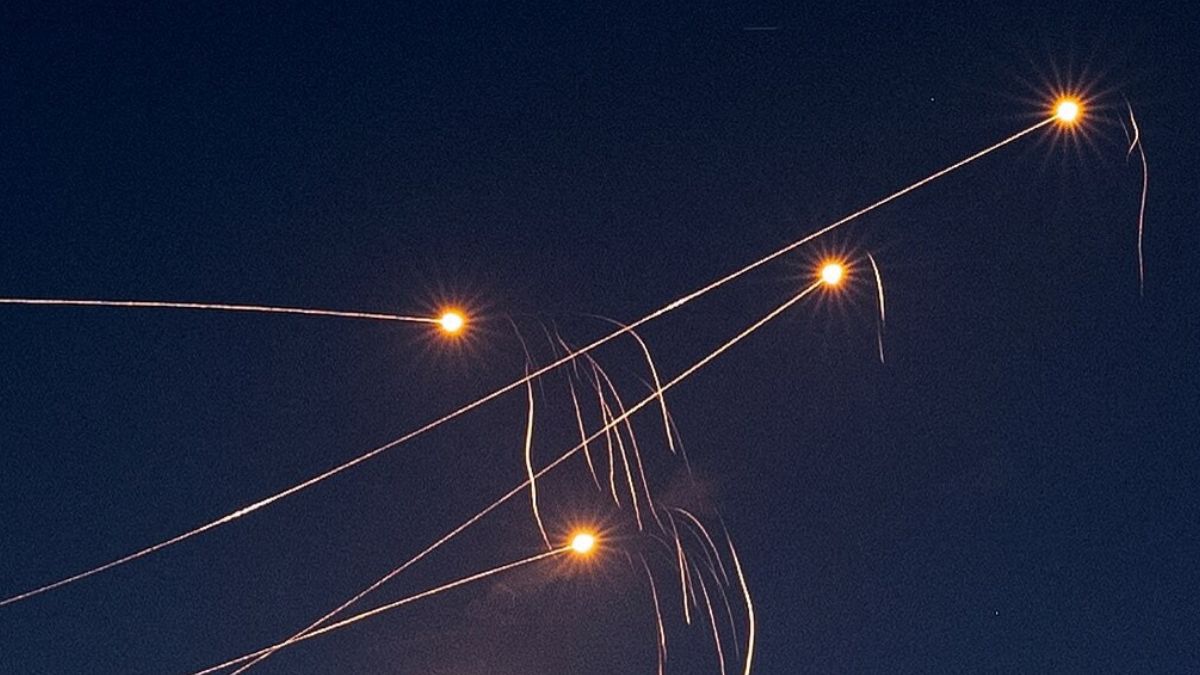Tehran claims that Iran’s missile and drone assault on Israel was the first move in a severe new plan that will result in “a direct and punishing response” for any more attacks by its bitter enemy.
This represents a significant change from previous years, when Israel and the Islamic Republic engaged in a secret war involving proxy conflicts and covert operations throughout the Middle East and occasionally beyond.
In retaliation for a deadly attack on Iran’s consulate in Damascus on April 1, Iran unleashed hundreds of drones and missiles at Israel starting late Saturday, including ones fired from its own territory.
With assistance from the US and other allies, the Israeli military claimed to have intercepted 99% of the aerial threats and that the nocturnal strike had only slightly damaged property.
Iran praised the operation as “successful” and claimed to have delivered “heavy blows” to Israel.
“Iran’s victorious… operation means that the era of strategic patience is over,” the Iranian president’s political deputy, Mohammad Jamshidi wrote on X.
“Now the equation has changed. Targeting Iranian personnel and assets by the regime will be met with a direct and punishing response.”
President Ebrahim Raisi said the operation had “opened a new page” and “taught the Zionist enemy (Israel) a lesson”.
Iran said it acted in self-defence after the Damascus strike levelled the consular annexe of its embassy and killed seven members of the Islamic Revolutionary Guard Corps (IRGC), including two generals.
Impact Shorts
More ShortsWestern governments denounced Iran’s retaliation as “destabilising the region”.
Iran, however, insisted the attack was “limited” and urged Western nations to “appreciate (its) restraint” towards Israel, especially since the outbreak of the Gaza war on October 7.
Regional tensions have soared amid the Israel-Hamas war which has drawn in Iran-backed armed groups in Lebanon, Syria, Iraq and Yemen.
Several IRGC members, including senior commanders, have been killed in recent months in strikes in Syria which Iran has also blamed on Israel.
Since the 1979 Islamic revolution, Iran has frequently called for Israel’s destruction and made support for the Palestinian cause a centrepiece of its foreign policy.
But it had refrained from directly striking Israel until Saturday, an attack on a scale which appeared to catch many in the international community by surprise.
For decades, Iran relied on a network of allied groups to exert its influence in the region and to deter Israel and the United States, according to experts.
A 2020 report by the Washington Institute said that Tehran had adopted a policy of “strategic patience”, which had “served it well since the inception of the Islamic republic in 1979”.
Former moderate president Hassan Rouhani was a staunch defender of the strategy, especially following Washington’s 2018 withdrawal from a landmark nuclear deal, advocating for Tehran not to take immediate countermeasures and taking a longer view.
Even after the 2020 US killing of Qasem Soleimani, an IRGC commander revered in Iran, Tehran gave prior warning to Washington, US sources said, before it launched missiles against two American bases in Iraq, and no soldiers were killed in the attack.
After Saturday’s attack on Israel, Guards chief Hossein Salami also said Iran was “creating a new equation”.
“Should the Zionist regime attack our interests, our assets, our personnel and citizens at any point, we will counterattack it from the Islamic Republic of Iran,” he was quoted as saying by local media.
The attack was also hailed as a “historic” success by Iranian media, with the government-run newspaper Iran saying the offensive “has created a new power equation in the region”.
The ultra-conservative daily Javan said the attack was “an experience Iran needed, to know how to act in future battles” and that it would make Israel “think long before (committing) any crime” against Tehran.
The reformist Ham Mihan newspaper said the attack “ended the status quo and broke the rules of the conflict that pitted the two sides against each other for 20 years and pushed the situation into another phase”.
“This is no longer a shadow war,” it said.
(With agency inputs)
)